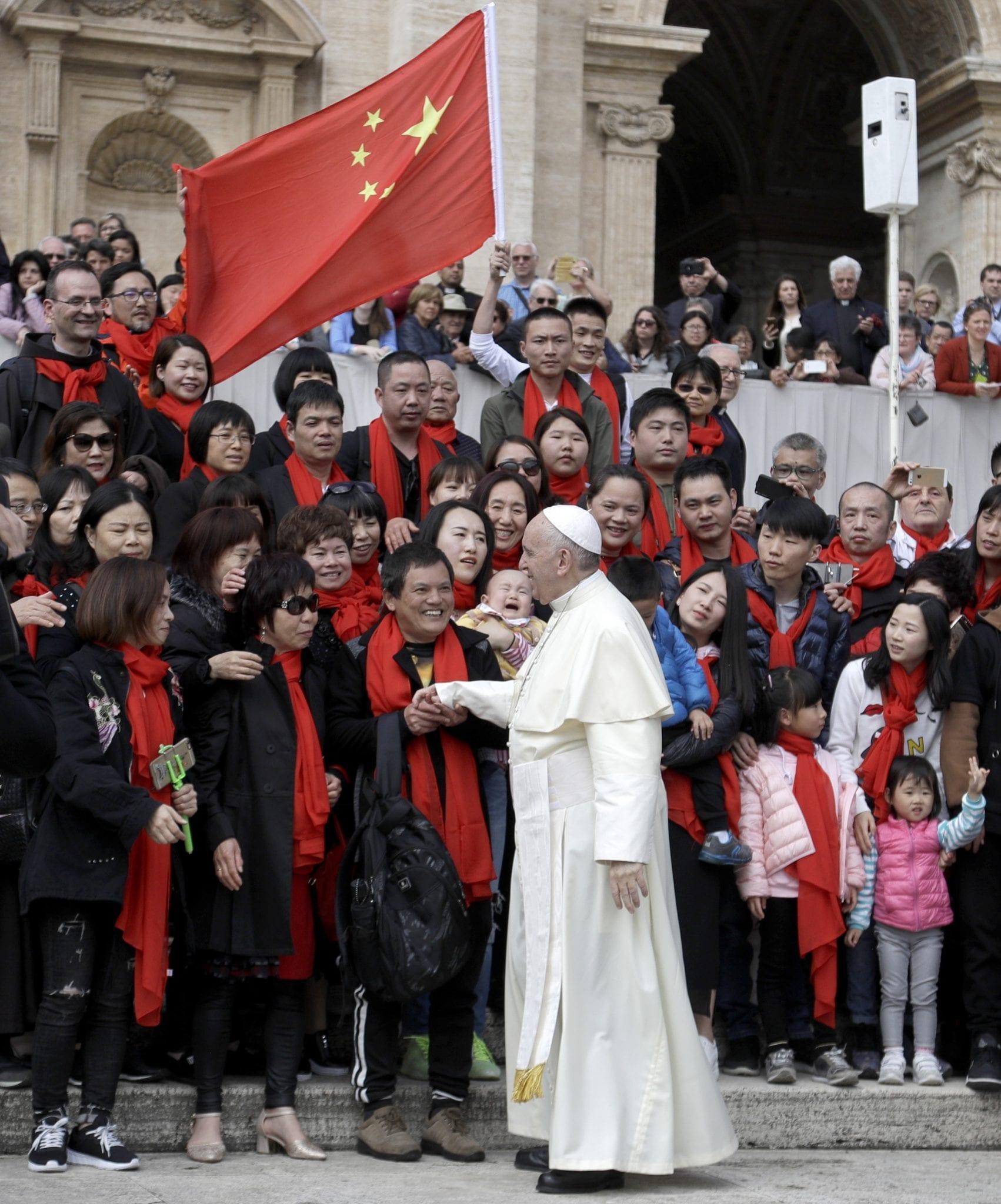ROME – From the beginning, Pope Francis’s deal with China on the appointment of bishops has drawn fire from critics who see it as throwing long-suffering “catacomb” Catholics under the bus. More recently, a senior U.S. official charged that since the agreement was inked last September, it’s also made religious persecution in China worse across the board.
Still other dissenters from the deal object that its terms remain secret. Six months later, all we know officially is that there is an agreement, but precious little about what it contains.
Whatever one makes of Francis’s China policy, however, here’s the thing: It’s not just his, but a long-standing papal strategy for engaging hostile communist regimes dating back at least to the era of St. Paul VI.
One of the China deal’s most ferocious critics, retired Hong Kong Cardinal Joseph Zen, knows that history well. He’s faulted the Vatican’s current Secretary of State, Italian Cardinal Pietro Parolin, for being the architect of the recent deal, saying Parolin comes from the same “diplomatic school” as his distant predecessor, Italian Cardinal Agostino Casaroli, who served as Vatican Secretary of State from 1979-1990 under St. John Paul II and who was renowned for a policy of Ostpolitik.
Originally, Ostpolitik was a term in the late 1960s to describe normalization of relations between the two Germanys. Later, it also came to refer to efforts under Paul VI to engage Eastern European communist regimes through compromise and agreements with the aim of building on small gains over time.
The same basic approach has been employed by every pope since for China, up to and including Francis – with the exception, perhaps, of John Paul I, whose 33 days in office didn’t allow him much time for international affairs.
During the John Paul II papacy, there were two currents on China that always in some way sat in tension with one another.
On one hand, there was John Paul’s personal support for an underground Church in China, which for him was reminiscent of Catholic suffering under communism in Europe, especially in his native Poland. However, there was also the Vatican’s corporate interest in closer ties with China, symbolized by John Paul’s two Secretaries of State – Casaroli and, later, Italian Cardinal Angelo Sodano – who both attempted to smooth things over with the goal of establishing formal relations.
It was Sodano who in 1999 famously announced the Vatican would close its embassy in Taiwan “not tomorrow, but today” if an invitation from Beijing ever came.
Despite strong efforts to engage Chinese authorities, John Paul would at times cut in the other direction, appointing bishops for the underground not approved by the government and ruffling the feathers of those in charge. In 1988, for instance, he issued a statement affirming the Holy See’s rejection of the Chinese Catholic Patriotic Association, essentially a government-controlled body administering Catholic affairs.
On Oct. 1, 2000, John Paul also canonized 120 martyrs spanning from several periods in Chinese history, including the 1900 Boxer Rebellion. The move was seen as an aggression, since the date of the canonizations fell on Chinese National Day. It drew a furious response from Chinese authorities, who argued that the martyrs had been agents of Western imperialism and had earned their fate.
John Paul eventually established an informal agreement between Rome and Beijing on the appointment of bishops, in which priests being considered by the patriotic association would seek approval from Rome. However, the deal eventually fizzled out.
In 2002 John Paul appointed Parolin the Vatican’s Undersecretary for Relations with States, allowing him to play an instrumental role in shaping reconciliation with Vietnam and in pursuing a similar thaw with China.
Benedict XVI’s papacy employed the same approach, saying in a 2007 letter to Chinese Catholics, which was essentially written as a bid at a fresh start with the Asian superpower, that there ought to be more direct contact between the Church and state officials.
“I realize that the normalization of relations with the People’s Republic of China requires time and presupposes the good will of both parties,” Benedict said in the letter, adding that, “For its part, the Holy See always remains open to negotiations, so necessary if the difficulties of the present time are to be overcome.”
In 2005, Parolin was the architect of a Vatican-Vietnam agreement on the appointment of bishops, allowing the pope to choose from a selection of three candidates put forward by the government. In 2009 Parolin reportedly came close to striking a similar deal with Beijing, but it wasn’t approved by Benedict and relations began to cool.
Momentum resumed under Francis, who after his election in 2013 named Parolin Secretary of State, allowing the Italian prelate to take another shot at the deal.
Reacting to criticism, Parolin recently told journalists the Holy See’s vision was to “help advance religious freedom, to find normalization for the Catholic community there, and then for all other religions to have space and a role to play in society which is recognized.”
RELATED: Facing criticism of China deal, Vatican’s top diplomat says ‘be patient’
“Our hope,” Parolin said, “is that [the agreement] will help, not limit, religious freedom.”
Responding to figures such as U.S. Ambassador-at-large for International Religious Freedom Sam Brownback, who charged last month the deal has emboldened religious persecution in China, Parolin said he at times feels “a little lost when I hear that, ‘Oh, no success or achievement has been made.’”
“Let things work peacefully, and then we’ll reach our goals,” he said, stressing the need to “be patient” and not to expect immediate results, since history is a “long process” which cannot be “built in one day.”
In terms of the time scale, Parolin is unquestionably right, since last September’s historic agreement between Rome and Beijing was arguably at least five decades in the making. Whether he’s also right about its long-term impact being positive, however, is something only yet more time will tell.













